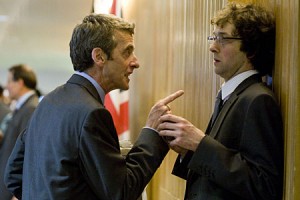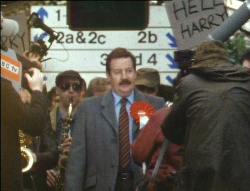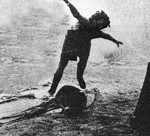by OLIVER WAKE
Play for Today Writer: Don Shaw; Director: Colin Bucksey; Producer: Louis Marks
“I hope no-one ever needs to go to war over the Falklands, or for that matter, any writer write about them.”
The short but bloody Falklands war between Britain and Argentina played out over two and a half months in 1982. Television drama responded with a handful of plays about the conflict, most of which seemed to excite almost as much controversy as the war itself. (See Disputed Territory: Drama and the Falklands.) The earliest of these was Don Shaw’s The Falklands Factor, which was broadcast in April 1983, just ten months after hostilities in the South Atlantic had concluded.
Specialising in contemporary drama, the BBC’s Play for Today anthology was the natural home for such a recent subject, however The Falklands Factor is actually a historical drama, Shaw having chosen to dramatise a little known incident from the eighteenth century to put the more recent conflict into historic context and draw parallels between the two crises. The reader must excuse the passages which follow detailing brief parts of the Falkland islands’ convoluted history, without which the meaning of the play and this essay will be impossible to convey.




